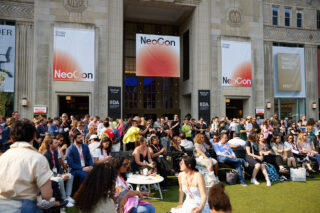The 2024 World Smart City Awards nominate projects that transform urban life through innovative, sustainable solutions.
The 2024 World Smart City Expo and Awards in Barcelona highlight forward-thinking solutions transforming urban landscapes globally. This year, the event received 429 groundbreaking submissions from 64 countries, underscoring the intense competition and innovation driving the field of urban development.
Recognized as one of the premier platforms for showcasing smart city initiatives, the World Smart City Awards honor achievements across diverse categories, including governance, mobility, energy, and inclusion. Each category is focused on making cities more sustainable, livable, and resilient. Finalists span various innovative projects, from Shenzhen’s “Smarter City, Better Life” initiative to technology-driven infrastructure projects in Greater Paris and environmental advancements in Amsterdam.
Winners were announced on November 6, promising to celebrate and inspire next-generation urban solutions. In this article, we’re selecting a few of our favorite projects from the list of nominees.
Agriculture and the Built World for a Better Future
Innovative solutions in agriculture and urban development are essential for creating sustainable cities that foster community well-being. In Slovenia, the Optifarm platform is revolutionizing local food systems by bridging the gap between farmers and consumers.
Through a mobile marketplace, Optifarm allows users to browse, purchase, and collect fresh local produce from smart refrigerated lockers, reducing last-mile delivery issues and promoting support for local agriculture. This model not only ensures the freshness and accessibility of local food but also encourages sustainable agricultural practices.
Meanwhile, in India, the Rourkela Cold Room Project tackles food waste through solar-powered cold rooms managed by women’s self-help groups. These facilities provide farmers and vendors with space to store produce, helping to minimize waste and boost profits. Such projects integrate agriculture into the built environment, fostering local economies and creating resilient communities.
Together, these initiatives illustrate how agricultural innovation can improve urban life and food security while advancing a sustainable, inclusive future for society as a whole.

In Rourkela city, Odisha, India, farmers struggled with produce wastage due to the lack of refrigerated storage. This issue led to significant financial losses and distress selling. To combat this, the Rourkela Municipal Corporation and UNDP, introduced solar-powered cold rooms managed by Women’s Self Help Groups. These cold rooms not only preserve perishables but also empower local women by providing employment and skill development opportunities. The initiative has significantly boosted farmers’ incomes, reduced wastage, and promoted environmental sustainability through solar power and electric rickshaws.
Improving Public and Common Spaces for the Well-being of All
Reimagining public spaces to promote inclusivity and well-being is a powerful way to foster community spirit and enrich urban life. India’s aProCh initiative stands out as a transformative project that turns cities into child-friendly environments. By reclaiming urban spaces for children, aProCh creates settings that encourage physical activity, mental stimulation, and social engagement. This shift not only supports children’s development but also inspires safer, more inclusive communities.
In Brazil, the Piratininga Orla Park project is revitalizing natural landscapes by restoring the Jacaré River Basin. This ambitious project transforms previously neglected areas into public parks and leisure spaces, enhancing accessibility and promoting environmental sustainability. Additionally, it integrates essential services like sanitation to accommodate diverse income groups, making these spaces viable for a range of residents.
Such projects underscore the importance of public spaces in enhancing quality of life, fostering social connections, and building healthier communities for all.

Energy Efficiency and a Greener Future for Citizens and Businesses
Energy-efficient infrastructure is key to supporting a greener, more resilient future for cities and their residents. In San Francisco, the “Yes SF” initiative leads a collaborative effort between public and private sectors to drive sustainability and climate resilience. By mobilizing local and international stakeholders, Yes SF fosters economic growth while reducing the city’s environmental footprint, improving urban quality of life, and rejuvenating the downtown area.
In Spain, the RegBCN project addresses urban energy needs through innovative building practices. Spearheaded by Constraula and the Polytechnic University of Catalonia, RegBCN enhances energy efficiency in buildings while expanding public and communal spaces. This project, which won the Barcelona City Council’s urban challenge, exemplifies how cities can integrate sustainable practices into infrastructure, creating eco-friendly spaces that benefit both residents and the environment.
Together, these initiatives highlight how energy-efficient solutions can reshape cities into eco-friendly environments that prioritize both citizen well-being and ecological sustainability.












